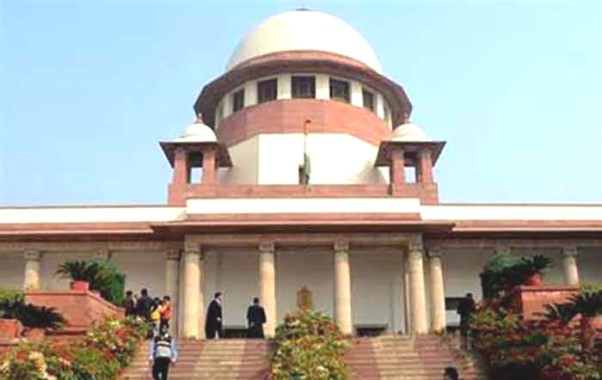




















Monday, Nov 18, 2024 10:45 [IST]
Last Update: Monday, Nov 18, 2024 05:10 [IST]
NEW DELHI, (IANS): The Supreme Court has held that
there does not exist a complete embargo on considering the anticipatory bail
plea of an accused who has been declared a proclaimed offender.
A
bench of Justices M.M. Sundresh and Aravind Kumar said that in the event of the
declaration under Section 82 of the Cr.P.C., it is not as if in all cases,
there will be a total embargo on considering the application for the grant of
anticipatory bail.
Granting
anticipatory bail to the mother-in-law of the deceased in a dowry death case,
the bench said: "When the liberty of the appellant is pitted against this,
the court will have to see the circumstances of the case, nature of the
offence, and the background based on which such a proclamation was
issued."
Taking
note of the submission that the appellant (mother-in-law) was not residing with
the deceased at the relevant point in time, the apex court ruled that her
custodial interrogation was not required and allowed the plea for anticipatory
bail.
"It
is a fit case for grant of anticipatory bail, on the condition that the
appellant shall cooperate with the further investigation. However, liberty is
also given to the respondents (authorities) to seek cancellation of bail that
has been granted, in the event of a violation of the conditions which are to be
imposed by the trial court or if there are any perceived threats against the
witnesses," the top court said.
In
its judgment, the Supreme Court rejected the contention that the appellant was
not cooperating in the investigation pursuant to the interim protection granted
and took note of the fact that despite communication sent by the appellant to
the investigating authority, she was not called to join the probe.
The
Madhya Pradesh Police opposed the appellant’s anticipatory bail plea saying
that she, apart from non-cooperation, had been declared as a proclaimed
offender in terms of Section 82 of Cr.P.C. and there existed incriminating
materials against her. The mother-in-law apprehended arrest for the offences
punishable under Sections 80, 85, 108, 3(5) of the Bharatiya Nyaya Sanhita,
2023 ( BNS) and Sections 3 and 4 of the Dowry Prohibition Act, 1961.
Her
son was earlier arrested in connection with the same offence and remains in
custody.
